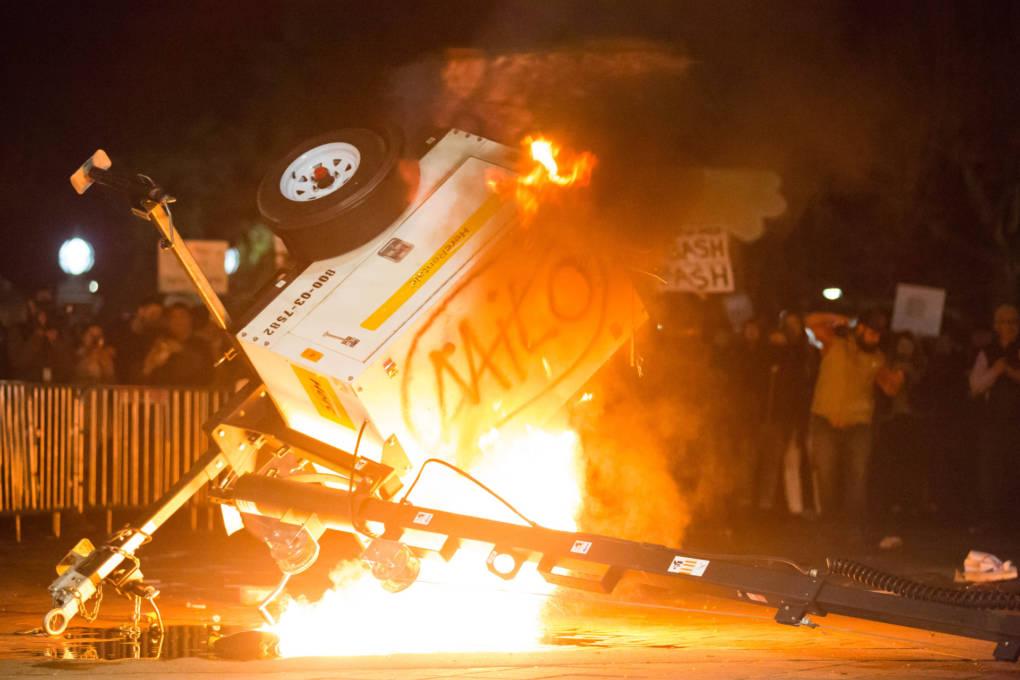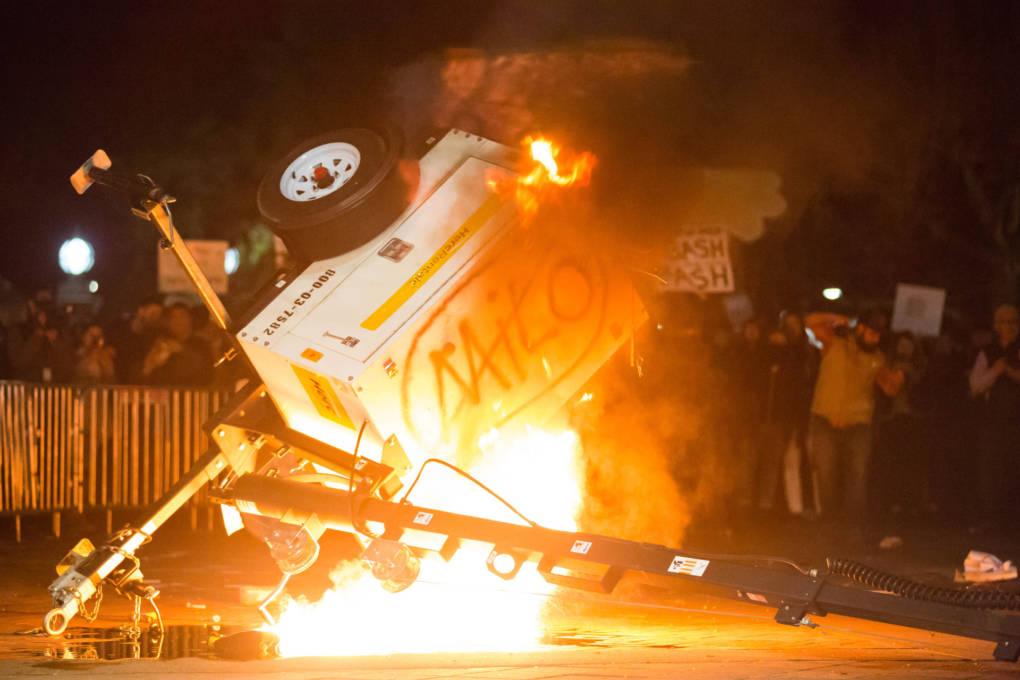Columnist Kitana Gachero
The fine line between hate-speech and free-speech was exacerbated last Wednesday night at the University of California, Berkeley when initial peaceful protests resulted in $100,000 in damage to the campus.
Infamous Republican advocate and editor at Breitbart News, Milo Yiannopoulos, was scheduled to speak at UC Berkeley until hundreds of students expressed their opposition via protest until it was eventually cancelled.
Students attempted to keep the protests peaceful until 150 masked “agitators,” who were unaffiliated with the university, set a series of fires and broke windows of the UC Berkeley Student Center where the event was to be held as reported by CNN. Agitators went as far as to throw Molotov cocktails and set off commercial-grade fireworks resulting in damage to the surrounding buildings.
Historically, UC Berkeley is known as a liberal campus and had garnered the reputation of unapologetically exercising the right of free speech. Being notorious for the protests during the Civil Rights Movement, Free Speech Movement and Vietnam war, it was inevitable students would oppose the controversial presence of Yiannopoulos.
Considering the circumstances of this event, it begs the question, does Yiannopoulos have as much equal rights as others to exercise the first amendment right to freedom of speech?
Fundamentally every citizen should have access to this basic right, however when your speech cultivates a culture of bigotry and provides a platform for discrimination to a point where students feel unsafe, then it should be prohibited.
According to the American Bar Association, hate-speech can be defined as speech that offends, threatens or insults groups based on race, color, religion, national orientation, sexual orientation, disability or other traits.
Yiannopoulos has earned the reputation of using very offensive rhetoric towards certain ethnic groups and organizations. He has recently spoke at several colleges across the country, many of which have been posted on Youtube and gone viral.
At the University of New Mexico, he heckled Muslim women attending the talk by saying “You’re wearing a hijab in the United States of America, what is wrong with you?”
Protest at uc berkely // abc 7 news
This incident has only been a snapshot of the provocative discourse he consistently promotes. Additionally, at the University of Colorado several students lead a protest resisting his speech which resulted in two arrests as reported by Fox 31, Denver. During his talk at the university, he compared their school mascot, a buffalo, to feminists. “The buffalo- a huge foul smelling ugly beast quickly disappearing from the American landscape.. Just like feminists.”
CNN reports that UC Berkeley, UC Davis and UCLA have all protested against the appearance of Yiannopoulos on their campus. If one person is inciting this level of backlash, should they be allowed to freely speak in places as responsive as college campuses? Especially if it causes such a high level of damage on not just one campus but several.
The protests across multiple college campuses demonstrate how problematic one person can become and how passionate people can be about resisting it. Yianopoulos is a vessel for spreading hate-speech and should prohibited from doing such.
Students’ right to protest against people or entities that are outwardly offensive or derogatory should be fully embraced. The first amendment allows this to be possible but it should not allow for hate-speech to be allowed as well. Considering the negative attention and chaos hate-speech can create, it should not be put on the same level as free-speech.





































